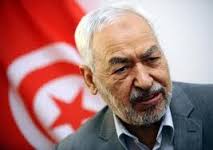
Tunisia: Concerns over Economic, Social Challenges Growing
 President Rached Ghannouchi of the Ennahdha political party has called on the country’s National Unity Government to prioritize the “economic challenges facing Tunisia and the upcoming (municipal and local) elections” instead of the political future of a Minister or Prime Minister.
President Rached Ghannouchi of the Ennahdha political party has called on the country’s National Unity Government to prioritize the “economic challenges facing Tunisia and the upcoming (municipal and local) elections” instead of the political future of a Minister or Prime Minister.
Presidential and parliamentary elections are scheduled to take place in 2019 but they have slowly overshadowed the country’s economic and financial crises.
A report from the International Monetary Fund (IMF) highlighted that Tunisia’s democratic evolution from the mass demonstration, which became known as the Arab Spring, has been able to overcome many challenges but the economic transition is delayed.
In a report published in July, IMF stated that the economy is not keeping pace with the ongoing democratic transition in this country and urged for reforms in the areas of taxation, pension, voluntary reduction of public service and improving budgetary outcomes. It also lamented about the social challenges that still persist warning that social discontent is high while the economy continues to be in a complex socio-political environment.
The ruling Nidaa Touness party admits that it is increasingly becoming challenging to surpass the economic and social realities that the government has to deal with while acknowledging that economic growth has also stalled.
The party’s Executive Director, Hafedh Caid Essebsi, said as the majority party of the ruling coalition government, they should table “alternatives to salvage the economy considering the economic indicators.” He called for an economic dialogue under the auspices of President Essebsi of Tunisia.
IMF has warned that improving the standard of living of the country’s youthful population will only be possible by transforming the country’s economic model.
